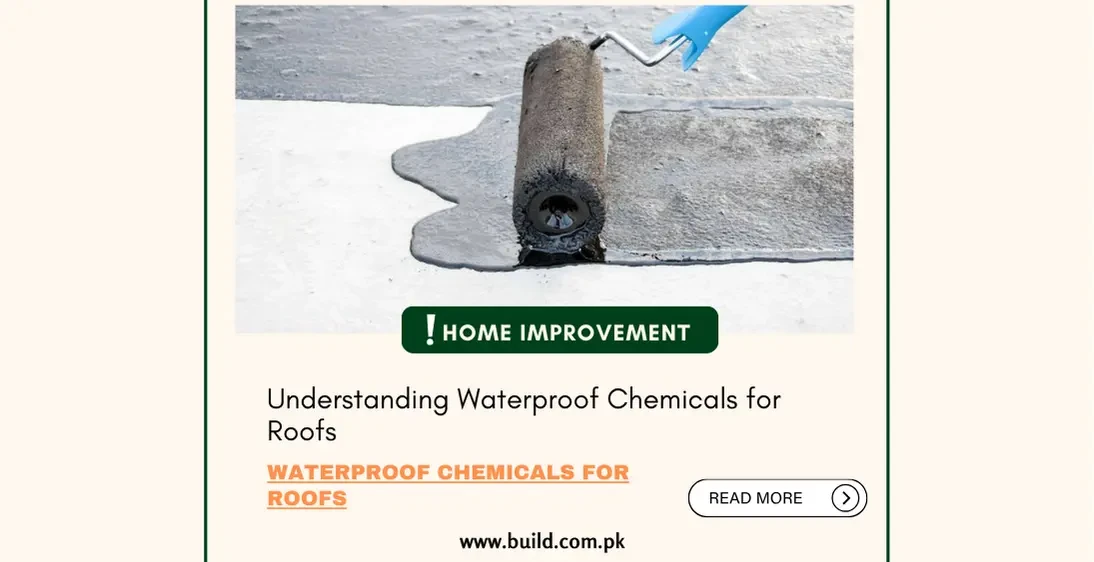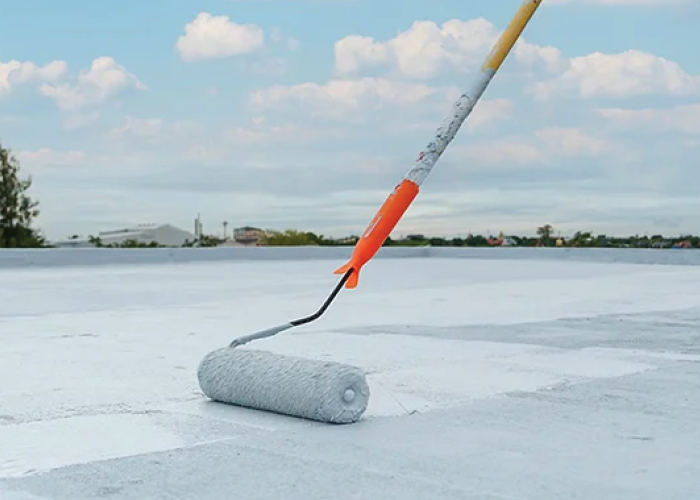Understanding Waterproof Chemicals for Roofs

Introduction:
Waterproof chemicals for
roofs play a crucial role in protecting buildings from water infiltration and
damage. These chemicals are applied to roofs to create a waterproof barrier
that prevents moisture from penetrating into the structure. They come in various
forms, including liquid catings, membranes, sealants, and additives designed
to enhance the waterproofing properties of roofing materials.
Types of Waterproof Chemicals
Liquid Membrane Coatings:
Liquid membrane coatings
are a popular choice for roof waterproofing due to their ability to form a
seamless, protective layer over the roof surface. These coatings are typically
made from various materials such as acrylic, silicone, polyurethane, or bitumen-based
compounds. They offer versatility in application and can be used on different
types of roofs, including flat roofs, sloped roofs, and metal roofs.
Versatility and Application: Liquid membrane coatings can adapt to different roof surfaces and configurations, making them suitable for a wide range of roofing applications. They can be applied as spray-on coatings, rolled on like paint, or troweled onto the roof surface, providing a flexible and seamless waterproofing barrier.
Seamless Protection: When applied correctly, liquid membranes create a continuous, seamless barrier that effectively prevents water infiltration and protects the underlying roof structure from moisture damage.
Durability and Performance:
High-quality liquid membrane coatings exhibit excellent durability and eather
resistance, withstanding UV exposure, temperature fluctuations, and harsh
weather conditions without compromising their waterproofing properties.
Maintenance and Repair:
Liquid membranes are relatively easy to maintain and repair. Regular
inspections and maintenance routines can help identify and address minor issues
before they escalate into larger problems.

Bituminous Waterproofing:
Bituminous waterproofing
involves the use of bitumen-based products such as asphalt or modified bitumen
membranes to create a waterproof barrier on the roof surface.
Excellent Waterproofing
Properties: Bituminous materials are known for their exceptional waterproofing
properties, making them a preferred choice for roofs exposed to heavy rainfall
or moisture.
UV Resistance and
Weathering: Bituminous membranes are designed to withstand prolonged exposure
to UV rays and harsh weather conditions without degrading or losing their
waterproofing effectiveness.
Flexibility and
Adaptability: Bitumen-based products offer flexibility, allowing them to
accommodate roof movement and structural settling without compromising their
ability to prevent water infiltration.
Installation Options:
Bituminous membranes can be installed using various methods, including torch-applied,
self-adhesive, or hot-mopped techniques, providing flexibility in installation
based on project requirements and budget constraints.
Polyurethane Sealants:
Polyurethane sealants are
versatile products used to seal joints, seams, and cracks in the roof to
prevent water intrusion and maintain the integrity of the waterproofing system.
Flexible and Durable:
Polyurethane sealants remain flexible after curing, accommodating roof movement
and expansion without cracking or losing their sealing properties.
Seamless Sealing: When
properly applied, polyurethane sealants create a seamless, watertight barrier
that effectively seals gaps and prevents water infiltration into the roofing
system.
Longevity and Performance:
High-quality polyurethane sealants offer long-term performance and durability,
withstanding exposure to UV rays, temperature fluctuations, and environmental
factors.
Compatibility and Adhesion:
Polyurethane sealants adhere well to various roofing materials, including
concrete, metal, wood, and asphalt, providing versatile sealing solutions for
different roof types and structures.
Silicone Roof Coatings:
Silicone roof coatings are
liquid-applied products that offer superior UV resistance, weatherproofing
capabilities, and durability when used for roof waterproofing.
UV Resistance: Silicone
roof coatings are highly resistant to UV degradation, maintaining their color
stability and waterproofing properties over time.
Weatherproofing
Performance: These coatings provide excellent weatherproofing, protecting th roof surface from rain, snow, hail, and environmental pollutants.
Breathability and Moisture
Control: Silicone roof coatings allow trapped moisture within the roof
structure to escape, preventing the buildup of moisture and reducing the risk
of mold or mildew growth.
Ease of Application:
Silicone roof coatings are easy to apply, typically requiring minimal surface
preparation and offering quick curing times, reducing downtime during
installation.
Benefits of Waterproof Chemicals for Roofs
Waterproof chemicals play a
critical role in protecting roofs from water damage and extending the lifespan
of roofing systems. Here's an expanded look at their key benefits:
Waterproofing Protection:
Waterproof chemicals create a protective barrier that prevents water
infiltration, reducing the risk of leaks, mold growth, and structural
deterioration.
Extended Roof Lifespan:
By
preventing moisture from penetrating into roofing materials, waterproof
chemicals help extend the lifespan of roofs, reducing the frequency of repairs
and replacement.
Reduced Maintenance Costs:
Properly waterproofed roofs require less maintenance over time, reducing the
need for costly repairs and prolonging the life of roofing materials.
Improved Energy Efficiency:
Some waterproof coatings have reflective properties that reduce heat
absorption, leading to lower cooling costs and improved energy efficiency.
Enhanced Building Comfort:
Waterproofing treatments contribute to a more comfortable indoor environment by
preventing drafts, leaks, and moisture-related issues that can impact occupant
comfort.
Applications of Waterproof Chemicals
New Roof Construction:
Waterproof chemicals play a
crucial role during the construction of new roofs by providing immediate
protection against water intrusion. They are applied as part of the roofing
system to create a durable and waterproof barrier that prevents moisture from
penetrating the roof structure. This proactive approach helps safeguard the
building from potential water damage and extends the lifespan of the roof.
Roof Repair and Restoration:
In cases where roofs have
been damaged due to wear and tear, storms, or other factors, waterproofing aterials are used for repair and restoration purposes. These materials help
seal cracks, gaps, and damaged areas on the roof surface, preventing further
water infiltration and reinforcing the structural integrity of the roof. By
applying waterproof chemicals during repair and restoration projects, property
owners can effectively address existing issues and prevent future problems.
Green Roofs:
For green roof
installations, waterproof coatings are essential to prevent water seepage into
the building structure. Green roofs consist of vegetation and landscaping
elements, which require reliable waterproofing to protect underlying building
components from excess moisture. Waterproof chemicals used in green roof
applications provide a durable and watertight barrier that supports the growth
of plants while maintaining the structural integrity of the building.
Flat Roof Waterproofing:
Flat roofs are particularly
vulnerable to water pooling and leaks due to their low slope. Waterproofing
flat roofs is essential to prevent water accumulation, which can lead to
structural damage, mold growth, and interior water intrusion. Waterproof
chemicals designed for flat roof applications create a seamless and durable
barrier that effectively sheds water and protects the roof substrate from
moisture-related issues.
Considerations When Choosing Waterproof Chemicals
Roof Type and Condition:
When selecting
waterproofing materials, consider the type and condition of the roof. Different
roof types (e.g., flat, sloped, metal) require specific waterproofing solutions
tailored to their unique characteristics. Additionally, the condition of the
roof, including existing damage or wear, should be assessed to determine the
most suitable waterproofing approach.
Weather Exposure:
Choose waterproof chemicals
that can withstand the local climate and weather conditions. Factors such as UV
exposure, temperature fluctuations, and precipitation levels can impact the
performance and longevity of waterproofing materials. Select products that are
designed to provide reliable protection in the specific environmental
conditions of the installation site.
Durability and Longevity:
Evaluate the durability and
expected lifespan of waterproofing products to ensure long-term performance and
protection. High-quality waterproof chemicals offer superior durability,
resisting degradation from exposure to sunlight, moisture, and other
environmental factors. Consider the manufacturer's warranty and product
specifications to assess the durability of the chosen waterproofing materials.
Roofing Materials:
Ensure that the selected
waterproof chemicals are compatible with the existing roofing materials to
avoid compatibility issues or damage. Different roofing materials, such as
asphalt, concrete, metal, or membrane, may require specific types of
waterproofing products. Consult with roofing professionals or manufacturers to
confirm compatibility and suitability for the intended application.
Maintenance Requirements:
Consider the installation
process and maintenance requirements of waterproofing materials when making a
selection. Some products require specialized application methods, curing times,
or surface preparation procedures. Additionally, evaluate the recommended
maintenance schedule to ensure proper upkeep and long-term performance of the
waterproofing system.
Conclusion;
Waterproof chemicals for roofs are essential for protecting buildings from water damage and extending the lifespan of roofing systems. By understanding the different types of waterproofing materials, their benefits, applications, and considerations, property owners can make infored decisions to ensure effective roof waterproofing and long-term structural integrity. Investing in quality waterproofing solutions can provide peace of mind and minimize the risk of costly roof repairs due to water-related issues.









